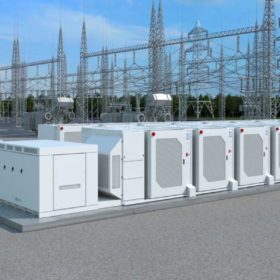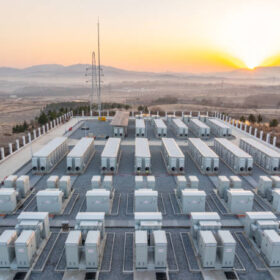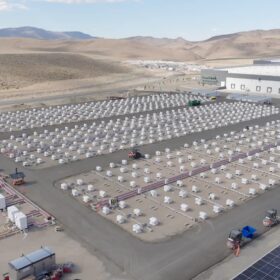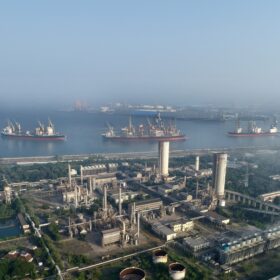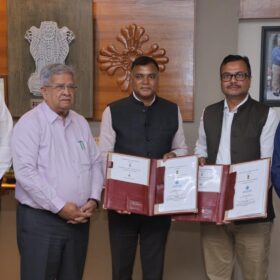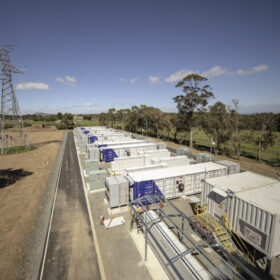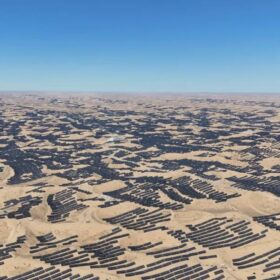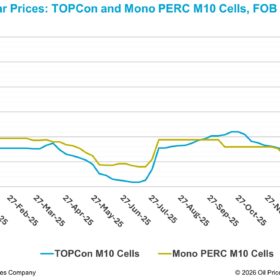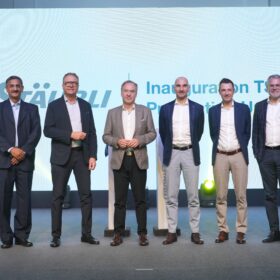JSW Energy secures BESPA for 250 MW/500 MWh battery storage project in Rajasthan
JSW Renew Energy Thirty Seven has signed battery energy storage purchase agreements (BESPA) with Rajasthan Rajya Vidyut Utpadan Nigam Ltd (RVUNL) for 250 MW/500 MWh of standalone battery energy storage system in Rajasthan.
VGF incentive cut may raise BESS tariffs by 10%, but impact likely temporary: SBICAPS
A new report by SBICAPS anticipates that the incentive cut under the second phase of the viability gap funding (VGF) scheme for standalone battery energy storage systems (BESS) could lead to a tariff increase of around 10%. However, it adds, this increase is manageable and could be absorbed in the coming months as capex costs continue to decline.
Redwood, Crusoe deploy second-life batteries at AI data center for 63 MWh storage
The second-life project represents the second largest deployment in North America, and the largest battery-powered microgrid.
Hindustan Power secures 100 MW solar, 200 MWh battery storage project from SJVN
Hindustan Power has secured a Letter of Award from SJVN Ltd to develop a 100 MW interstate transmission system (ISTS)-connected solar power project paired with a 200 MWh battery energy storage system.
AM Green acquires stake in Greenko from ORIX
The stake acquisition enhances AM Green’s upstream integration with Greenko, which runs over 10 GW of renewable and pumped storage assets and is building the world’s largest “Intelligent Energy Storage Cloud Platform.”
THDCIL signs 184.08 MW PPA with GUVNL for Tehri pumped storage project
State-run hydropower company THDC India Ltd (THDCIL) has signed a power purchase agreement (PPA) with Gujarat Urja Vikas Nigam Ltd (GUVNL) for the supply of 184.08 MW of clean power from India’s first variable-speed pumped storage project at Tehri, Uttarakhand.
From trash to treasure: Is India ready for battery recycling revolution?
Given the demand and the unavailability of Lithium, Nickel, Cobalt, Manganese, and Rare Earth Elements (REEs) in sufficient quantities, as a nation, we may be staring at a scenario we had with crude.
Acme Solar wins 275 MW/550 MWh standalone BESS project in Andhra Pradesh
Acme Solar Holdings has emerged as the winning bidder for 275 MW/550 MWh of standalone battery energy storage systems (BESS) across two projects in Andhra Pradesh.
NLC awarded 250 MW/500 MWh battery storage project in Tamil Nadu
NLC India Renewables Ltd has received a Letter of Award from Tamil Nadu Green Energy Corp. Ltd to develop three standalone battery energy storage system (BESS) projects totaling 250 MW/500 MWh
Kundan Green Energy secures LOI for 10 MW/40 MWh battery storage project in Bihar
Kundan Green Energy will develop the 10 MW/40 MWh standalone battery energy storage system (BESS) in Bihar’s Champaran district, supported under the government’s viability gap funding (VGF) scheme.
